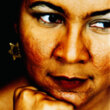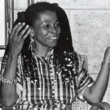From #BlackLivesMatter to Black liberation
Description
More Details
Davis, Angela Y.1944- writer of foreword
Taylor, Keeanga-Yamahtta Author
9781608465637
Subjects
African Americans -- Employment -- History
African Americans -- Social conditions -- 21st century
Black lives matter movement
Discrimination in criminal justice administration
Multi-Cultural
Nonfiction
Obama, Barack -- Influence
Police brutality -- United States
Police misconduct -- United States
Politics
Post-racialism -- United States
Race discrimination -- United States
Racial justice -- United States
Racial profiling in law enforcement -- United States
Racism -- United States -- 21st century
Social movements -- United States -- 21st century
Sociology
Also in this Series
Published Reviews
Choice Review
The African American experience in the 21st century is riddled with paradox. It seems to simultaneously be the best of times and the worst of times. The college-educated, white-collar, black middle class is larger than ever in history, and in 2008, the nation elected a black (biracial) president. Since the 1960s, segregation and disenfranchisement have been overcome, and the Fair Housing Act of 1968 opened access to the suburbs--between 1970 and 2000, some seven million black people moved to the suburbs. Yet today, racial hostility toward blacks seems as pronounced as ever, and the vaunted progress did nothing to save Oscar Grant, Eric Garner, Walter Scott, Sam DuBose, and others from a seeming epidemic of police terror and murder. The celebrated progress does not seem to have made enough of a difference to "make any difference." Hence, the significance of the Black Lives Matter movement. Taylor (African American studies, Princeton) argues that the discourse of a color-blind, post-racial society is used to dismantle the state's capacity to challenge discrimination, and the argument that black deprivation is rooted in black culture deflects attention away from the systemic roots of racism. A good companion to Clarence Lang's Black America in the Shadow of the Sixties (CH, Oct'15, 53-0950). Outstanding. Summing Up: Essential. All public and academic levels/libraries. --Wayne C. Glasker, Rutgers, The State University of New Jersey, Camden




































